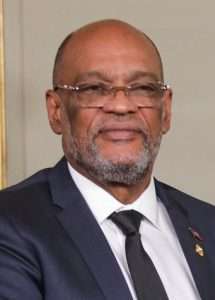In a significant political development, Haiti’s Prime Minister Ariel Henry has announced his resignation amidst escalating violence and instability in the country. Stranded in Puerto Rico due to gang interference, Henry’s departure aligns with regional leaders’ discussions for Haiti’s political transition. His tenure, marked by delayed elections and increasing gang dominance, ends as the nation grapples with a dire humanitarian situation and calls for international intervention.

Amidst a backdrop of deteriorating security and a humanitarian crisis, Ariel Henry, Haiti’s Prime Minister, has tendered his resignation, marking a pivotal moment in the nation’s ongoing struggle for stability. Since assuming office in July 2021 after President Jovenel Moïse’s assassination, Henry’s leadership has been contentious, with critical elections postponed and gang violence escalating. Stranded in Puerto Rico, unable to return home due to gang blockades, Henry announced his resignation via a video address, urging peace and stability for Haiti.
The resignation comes in the wake of a meeting in Jamaica where Caribbean leaders deliberated on Haiti’s future, signaling a collective regional effort to address the crisis. Haiti’s capital, Port-au-Prince, remains in a state of emergency, with gangs exerting control over key areas, exacerbating the country’s vulnerability to food and medical shortages.
Internationally, the situation has drawn concern, with the US and Caricom advocating for a transitional council to shepherd Haiti towards elections and stability. The international community’s role, particularly in security assistance, is deemed crucial in countering gang dominance and paving the way for Haiti’s recovery.
As Haiti stands at a crossroads, the departure of Ariel Henry underscores the urgent need for a cohesive and inclusive approach to governance, with the hope that the transitional council can steer the nation towards a more stable and democratic future.
(Associated Medias) – All rights reserved.

